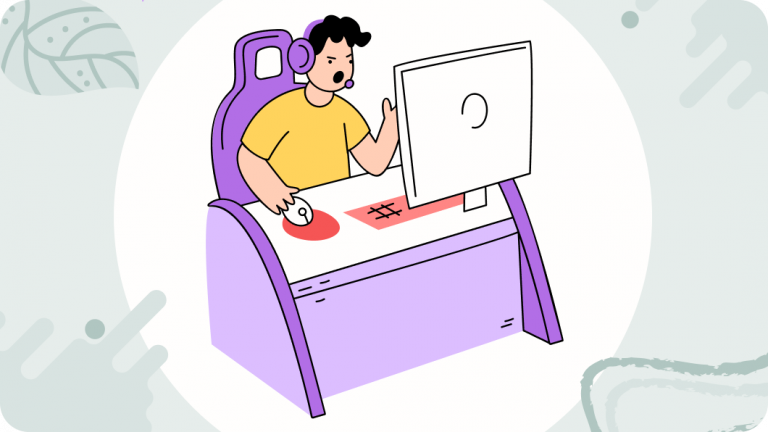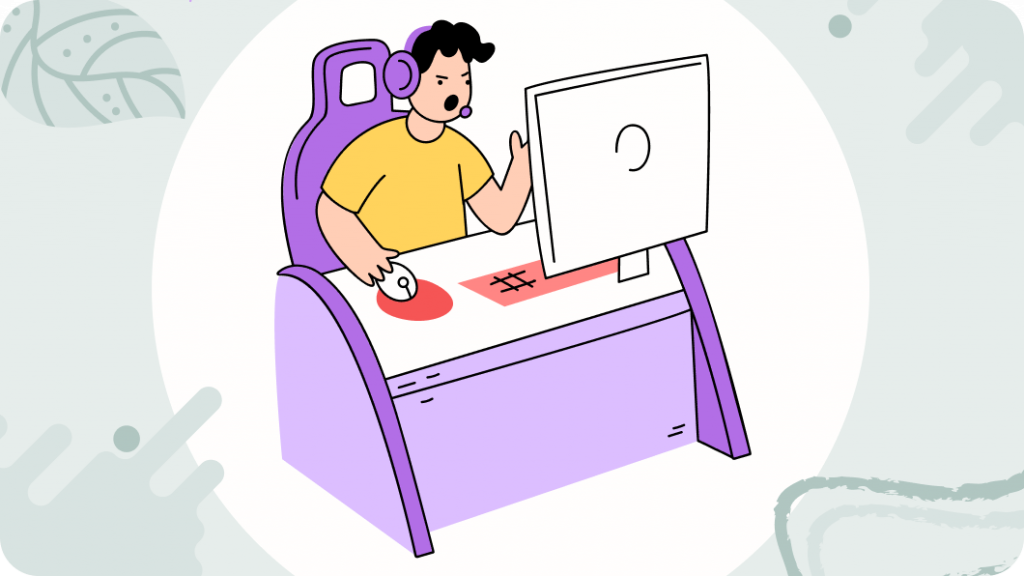Technology and Your Brain’s Intuition
In today’s world, it’s all too easy to fall prey to the flood of trivial information that bombards our brains. But the amazing technological advancements which have enriched our lives in so many ways, have also had an insidious effect.
The ability to connect with so much information in such an immediate manner has introduced new challenges to our brain’s ability to function, and come at a pace which far exceeds the human brain’s ability to adapt. The critical aspect which is often overlooked is the impact of digital overload on our brain’s intuitive abilities.
Our exploration of technology’s impact on the neuroscience of intuition, how digital overload affects it, and how we can harness technology to enhance our intuition in an increasingly connected world begins with an alarming vignette which highlights the impact of digital overload.
Pieces of the Puzzle
Enter Muhammad, a former professor and educator, now deeply invested in fostering his professional network and constantly connected and engaged with digital platforms.
Muhammad’s mind once thrived on curiosity, but the allure of TikTok soon captivated his attention. Brain fog crept in, clouding his ability to synthesize complex information. The relentless stream of hypnotic social media posts dulled his keen ability to think deeply, transforming his cognition into a “click-and-enjoy” system rather than one of deep reading and processing.
Muhammad struggled to piece together intricate concepts both at work and in life. His professional network company required being a conference organizer. He found it increasingly difficult to synchronize travel arrangements for speakers at an international medical conference, even booking a week-long layover in Egypt for one professor by mistake.
Scrolling to Eternity
Each scroll through TikTok’s endless feed further blurred his mental clarity, but he couldn’t seem to stop. Even during bathroom breaks, his phone was ever-present. Addicted and longing for the days when his thoughts flowed freely, Muhammad realized the toll of social media overexposure on his cognitive abilities. He struggled to focus on tasks for extended periods and noticed a decline in memory retention.
Determined to reclaim his mental acuity, Muhammad limited his TikTok time to morning coffee and after dinner for an hour. Though challenging at first, the fog gradually lifted, and clarity returned.
Empowered by newfound focus, Muhammad rekindled the intellectual curiosity that once defined him, even rediscovering the pleasure of reading books and highlighting a newfound understanding of the corruptible nature of his brain’s intuitive function.
The Brain’s Inability
Like Muhammad, many of us experience shorter attention spans due to increased social media use, making it more challenging to tap into our intuitive abilities. Intuition is the brain’s ability to make decisions based on subconscious information processing and pattern recognition. It relies on the rapid and automatic activation of various neural networks and neurotransmitters, such as dopamine and serotonin. These neurotransmitters play significant roles in modulating attention, reward, and decision-making processes, vital for intuitive reasoning.
It’s in the Gut
What many people colloquially call their “gut” is actually intuition, a natural instinct supported by dynamic neural networks across various brain regions. Dopamine and serotonin are two key neurotransmitters in this context.
Dopamine, involved in the brain’s reward system, sharpens focus and enhances attention, enabling rapid information processing and pattern recognition. Serotonin regulates mood, emotions, and social behavior, contributing to well-being and confidence—essential factors for intuitive decision-making. Optimal serotonin levels promote cognitive flexibility and creativity, necessary for generating novel insights and solutions.
The interplay between these neurotransmitters, along with diverse neural network activity, underpins the complex processes of intuitive reasoning. As information is rapidly processed and patterns recognized subconsciously, dopamine and serotonin modulate attention, enhance cognitive flexibility, and regulate emotional responses, ultimately influencing intuitive decision-making.
Think or Sink
Despite the challenges posed by digital overload, recent advances in neuroscience suggest that technology can improve our brain’s natural intuitive functions. By understanding the neural mechanisms underlying intuition, we can develop targeted interventions to boost attention, focus, and decision-making abilities.
Strengthening neurotransmitter activity is crucial for enhancing intuition. A study by Baas et al. (2016) showed that individuals with higher dopamine synthesis capacity exhibit lower attentional control, suggesting that interventions enhancing dopamine transmission, which may improve intuitive abilities. Similarly, mindfulness-based interventions have been shown to increase serotonin levels, contributing to better intuitive decision-making (Goldberg et al., 2018).
Overloading Attention
To counteract the negative effects of digital overload and enhance attentional intelligence, we can adopt various strategies and technologies. One promising approach is digital detox, where individuals disconnect from digital devices for a set period to reduce information overload and regain focus. Incorporating regular mindfulness practices into daily routines has also been shown to improve attentional functioning and coping strategies (Goldberg et al., 2015).
Emerging technologies like neurofeedback and brain stimulation techniques can further enhance intuitive abilities. Neurofeedback trains individuals to alter brain activity patterns, leading to improvements in attention and decision-making. Brain stimulation can modulate neural activity in specific brain regions involved in intuitive reasoning, potentially enhancing our intuitive capacities.
Final Thoughts
Intuition emerges from the intricate interplay of neural networks and neurotransmitters within the brain, enabling rapid and adaptive decision-making based on subconscious information processing and pattern recognition. Dopamine and serotonin play key roles in modulating attention, reward, and emotional states, influencing the intuitive reasoning process. While digital overload poses significant challenges to our intuitive abilities, recent neuroscience advances and technological solutions offer promising ways to counter these effects.
By harnessing the power of technology and incorporating targeted interventions into our lives, we can enhance our brain’s natural intuitive functions, leading to improved attention, decision-making, and overall well-being.
References
- Loh, K. K., & Kanai, R. (2014). Higher Media Multi-Tasking Activity Is Associated with Smaller Gray-Matter Density in the Anterior Cingulate Cortex. PLOS ONE, 9(9), e106698. https://doi.org/10.1371/journal.pone.0106698
- Rich, M. (2019). Screen Time and the Brain. Harvard Medical School. Retrieved from https://hms.harvard.edu/news/screen-time-brain
- Dahmani, L., & Bohbot, V. D. (2020). Habitual use of GPS negatively impacts spatial memory during self-guided navigation. Scientific Reports, 10(1), 6310. https://doi.org/10.1038/s41598-020-62877-7
- Chen, X., Raine, A., & Sinha, R. (2023). Digital dementia: Association of media multitasking with structural and functional neural correlates. NeuroImage, 256, 119273. https://doi.org/10.1016/j.neuroimage.2023.119273
- Psychology Today. (2020). Digital Dementia: Can Too Much Screen Time Lead to Cognitive Decline? https://www.psychologytoday.com/us/blog/mental-wealth/202010/digital-dementia-can-too-much-screen-time-lead-cognitive-decline
- Ruder, D. B. (2019). Screen Time and the Brain. Harvard Medical School. https://hms.harvard.edu/news/screen-time-brain
- Goldberg, S. B., Tucker, R. P., Greene, P. A., Davidson, R. J., Wampold, B. E., Kearney, D. J., & Simpson, T. L. (2018). Mindfulness-based interventions for psychiatric disorders: A systematic review and meta-analysis. Clinical Psychology Review, 59, 52-60. https://doi.org/10.1016/j.cpr.2017.10.011















